-
 Bitcoin
Bitcoin $102,949.6253
3.38% -
 Ethereum
Ethereum $2,338.4946
19.99% -
 Tether USDt
Tether USDt $0.9999
-0.02% -
 XRP
XRP $2.3968
8.64% -
 BNB
BNB $637.0250
3.78% -
 USDC
USDC $1.0000
-0.01% -
 Dogecoin
Dogecoin $0.2072
13.02% -
 Cardano
Cardano $0.7924
10.43% -
 TRON
TRON $0.2636
5.05% -
 Sui
Sui $3.9829
6.14% -
 Chainlink
Chainlink $16.2479
9.39% -
 Avalanche
Avalanche $23.5942
12.80% -
 Stellar
Stellar $0.3007
9.90% -
 Shiba Inu
Shiba Inu $0.0...01519
13.38% -
 Hedera
Hedera $0.2018
8.61% -
 Hyperliquid
Hyperliquid $25.2936
17.11% -
 Bitcoin Cash
Bitcoin Cash $414.7416
0.06% -
 Toncoin
Toncoin $3.2860
5.54% -
 UNUS SED LEO
UNUS SED LEO $8.7364
-0.74% -
 Litecoin
Litecoin $98.2278
6.74% -
 Polkadot
Polkadot $4.6909
10.44% -
 Monero
Monero $303.6835
1.99% -
 Dai
Dai $1.0000
-0.03% -
 Pepe
Pepe $0.0...01270
39.94% -
 Bitget Token
Bitget Token $4.4987
3.48% -
 Pi
Pi $0.7410
19.57% -
 Ethena USDe
Ethena USDe $1.0002
-0.01% -
 Uniswap
Uniswap $6.3515
21.66% -
 Bittensor
Bittensor $430.2143
7.45% -
 Aptos
Aptos $5.6979
11.74%
What is the consensus mechanism of Terra(LUNA) currency?
The DPoS consensus mechanism in Terra utilizes a system of delegates, elected by token holders, who validate transactions and maintain the blockchain's integrity while providing fast and scalable processing.
Dec 09, 2024 at 02:05 am

Consensus Mechanism of Terra (LUNA) Currency
Terra (LUNA) utilizes a Delegated Proof-of-Stake (DPoS) consensus mechanism, an efficient and secure method for achieving consensus and validating transactions on a blockchain network. In a DPoS system, a predefined set of delegates or validators are chosen based on their stake or resources to validate transactions and maintain the integrity of the blockchain.
Key Concepts of DPoS in Terra (LUNA)
- Delegates: These are entities or individuals responsible for validating transactions and producing blocks. They are elected by LUNA token holders based on their stake and technical capabilities.
- Stake: LUNA token holders can stake their tokens to support specific delegates, increasing their voting power. The more LUNA a delegate receives, the more likely they are to be elected and participate in block production.
- Voting: LUNA token holders vote for their preferred delegates using their staked tokens. The top-ranking delegates with the highest number of votes are elected to the active set of validators.
- Block Production: Elected delegates are responsible for packaging and validating transactions into blocks. Once a block is produced, it is broadcast to other nodes on the network for verification and inclusion into the blockchain.
Advantages of DPoS in Terra (LUNA)
- Efficiency: DPoS is a fast and efficient consensus mechanism, allowing Terra (LUNA) to process transactions quickly and handle high transaction volumes.
- Scalability: By relying on a limited number of delegates, DPoS can achieve high transaction throughput and scalability, enabling Terra to support a growing network of users and applications.
- Security: The DPoS mechanism encourages validators to act honestly, as they are financially incentivized (through staked tokens) to maintain the network's security. Additionally, the random selection of delegates helps prevent collusion and malicious activities.
- Flexibility: The Terra (LUNA) network can adjust the number of active delegates dynamically based on network conditions, ensuring optimal performance and efficiency.
Process of Reaching Consensus in Terra (LUNA)
The DPoS consensus mechanism in Terra (LUNA) involves the following steps:
- Candidate Registration: Validators interested in participating must register their intent and demonstrate their technical capabilities to the community.
- Token Staking: LUNA token holders stake their tokens to support their preferred validators, providing them with voting power.
- Delegate Voting: Token holders vote for their preferred delegates based on their stake. The top-voted candidates are elected to the active delegate set.
- Block Production: Active delegates take turns validating transactions and producing blocks. Each block contains a list of validated transactions, a cryptographic hash of the previous block, and other relevant data.
- Transaction Validation: The produced block is broadcast to other nodes on the network, where it is verified by running a series of checks. If the block is valid, it is added to the blockchain.
- Consensus: Once a majority of nodes accept the new block, it becomes part of the official blockchain, and the transactions within it are considered final.
Disclaimer:info@kdj.com
The information provided is not trading advice. kdj.com does not assume any responsibility for any investments made based on the information provided in this article. Cryptocurrencies are highly volatile and it is highly recommended that you invest with caution after thorough research!
If you believe that the content used on this website infringes your copyright, please contact us immediately (info@kdj.com) and we will delete it promptly.
- Dogecoin Price is Climbing toward $0.20
- 2025-05-09 19:05:14
- Dogecoin (DOGE) Price Prediction: What's Driving DOGE's Current Price Surge?
- 2025-05-09 19:05:14
- Sui (SUI) Integrates with Axelar Network to Unlock Cross-Chain Interoperability
- 2025-05-09 19:00:13
- Bitcoin (BTC) Reaches the Psychological Price Level of $100,000
- 2025-05-09 19:00:13
- Pectra: Ethereum Takes a Transformative Leap Forward, Opening New Markets and Redefining the Stack
- 2025-05-09 18:55:12
- Coinbase Q1:- The leading crypto exchange Coinbase has released it Quarterly report for Q1 2025.
- 2025-05-09 18:55:12
Related knowledge
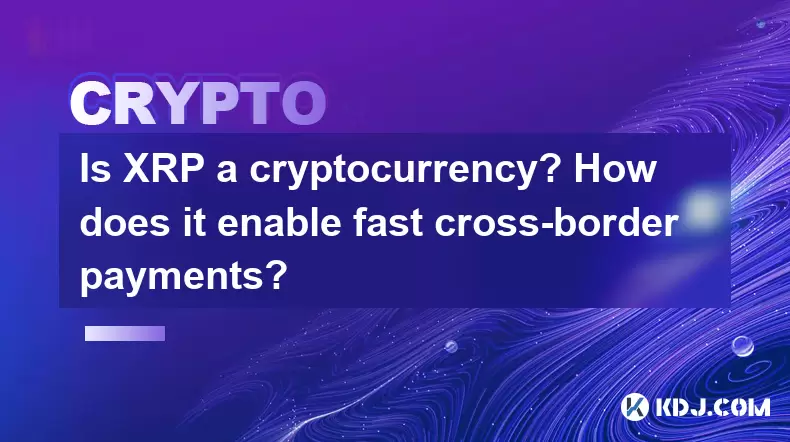
Is XRP a cryptocurrency? How does it enable fast cross-border payments?
May 09,2025 at 04:21pm
Is XRP a cryptocurrency? How does it enable fast cross-border payments? XRP is indeed a cryptocurrency, and it plays a significant role in facilitating fast cross-border payments. Created by Ripple Labs, XRP is designed to serve as a bridge currency in international transactions, enabling quick and cost-effective transfers between different currencies. ...
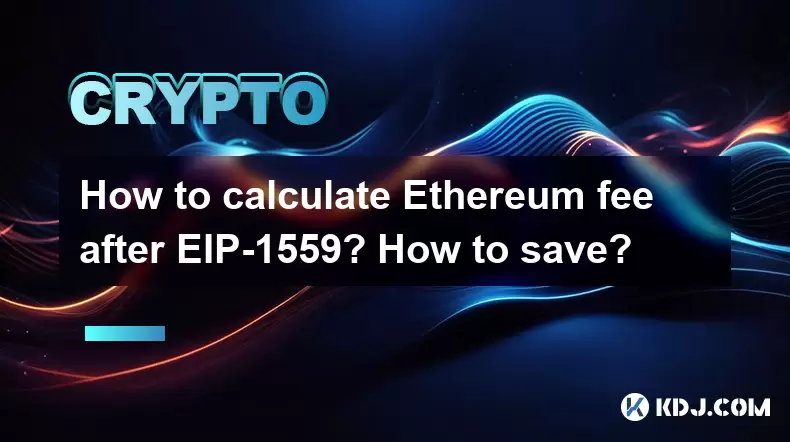
How to calculate Ethereum fee after EIP-1559? How to save?
May 09,2025 at 08:01am
The introduction of EIP-1559 in August 2021 brought significant changes to the Ethereum network's fee structure, revolutionizing how users interact with transaction costs. This article will delve into the specifics of how to calculate Ethereum fees post-EIP-1559 and offer strategies to save on these fees. Understanding EIP-1559 and its ComponentsEIP-155...
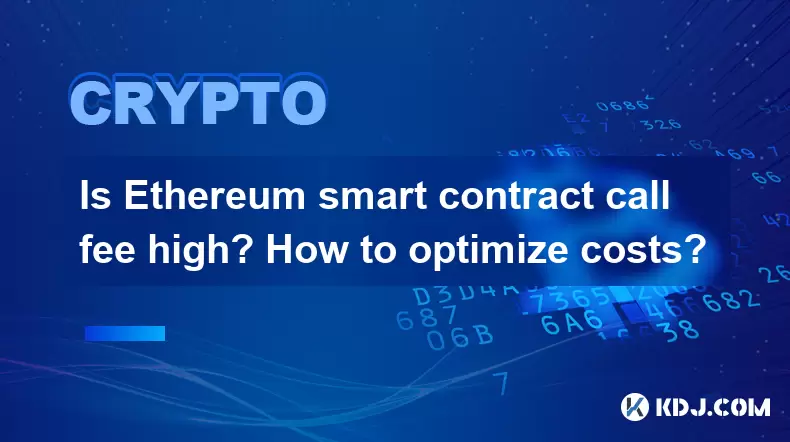
Is Ethereum smart contract call fee high? How to optimize costs?
May 08,2025 at 09:35am
Is Ethereum Smart Contract Call Fee High? How to Optimize Costs? The world of Ethereum smart contracts has revolutionized the way we think about decentralized applications and blockchain technology. However, one of the most frequently discussed topics within this realm is the cost associated with executing smart contract calls. In this article, we will ...
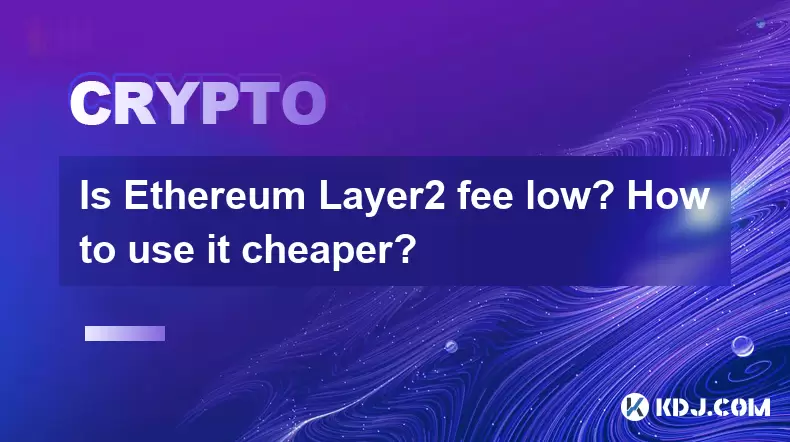
Is Ethereum Layer2 fee low? How to use it cheaper?
May 08,2025 at 03:56am
The question of whether Ethereum Layer 2 solutions offer lower fees and how to use them more economically is a topic of great interest within the cryptocurrency community. Ethereum's Layer 2 solutions have been developed to address the high transaction fees and scalability issues associated with the main Ethereum network. In this article, we will delve ...

How to calculate Ethereum network fee? How to reduce transaction costs?
May 08,2025 at 02:15am
Understanding and managing Ethereum network fees is crucial for anyone involved in transactions on the Ethereum blockchain. The network fee, also known as gas fee, is the amount of Ether (ETH) required to successfully conduct a transaction or execute a smart contract on the Ethereum network. Calculating these fees and finding ways to reduce them can sig...
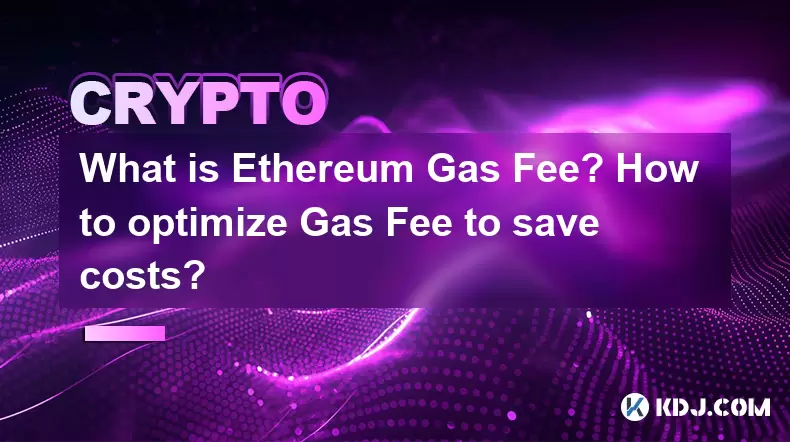
What is Ethereum Gas Fee? How to optimize Gas Fee to save costs?
May 08,2025 at 03:43am
Ethereum gas fees are a crucial aspect of interacting with the Ethereum blockchain. Understanding and optimizing these fees can significantly impact the cost-effectiveness of transactions and smart contract interactions. In this article, we will delve into what Ethereum gas fees are, how they are calculated, and provide detailed strategies for optimizin...

Is XRP a cryptocurrency? How does it enable fast cross-border payments?
May 09,2025 at 04:21pm
Is XRP a cryptocurrency? How does it enable fast cross-border payments? XRP is indeed a cryptocurrency, and it plays a significant role in facilitating fast cross-border payments. Created by Ripple Labs, XRP is designed to serve as a bridge currency in international transactions, enabling quick and cost-effective transfers between different currencies. ...

How to calculate Ethereum fee after EIP-1559? How to save?
May 09,2025 at 08:01am
The introduction of EIP-1559 in August 2021 brought significant changes to the Ethereum network's fee structure, revolutionizing how users interact with transaction costs. This article will delve into the specifics of how to calculate Ethereum fees post-EIP-1559 and offer strategies to save on these fees. Understanding EIP-1559 and its ComponentsEIP-155...

Is Ethereum smart contract call fee high? How to optimize costs?
May 08,2025 at 09:35am
Is Ethereum Smart Contract Call Fee High? How to Optimize Costs? The world of Ethereum smart contracts has revolutionized the way we think about decentralized applications and blockchain technology. However, one of the most frequently discussed topics within this realm is the cost associated with executing smart contract calls. In this article, we will ...

Is Ethereum Layer2 fee low? How to use it cheaper?
May 08,2025 at 03:56am
The question of whether Ethereum Layer 2 solutions offer lower fees and how to use them more economically is a topic of great interest within the cryptocurrency community. Ethereum's Layer 2 solutions have been developed to address the high transaction fees and scalability issues associated with the main Ethereum network. In this article, we will delve ...

How to calculate Ethereum network fee? How to reduce transaction costs?
May 08,2025 at 02:15am
Understanding and managing Ethereum network fees is crucial for anyone involved in transactions on the Ethereum blockchain. The network fee, also known as gas fee, is the amount of Ether (ETH) required to successfully conduct a transaction or execute a smart contract on the Ethereum network. Calculating these fees and finding ways to reduce them can sig...

What is Ethereum Gas Fee? How to optimize Gas Fee to save costs?
May 08,2025 at 03:43am
Ethereum gas fees are a crucial aspect of interacting with the Ethereum blockchain. Understanding and optimizing these fees can significantly impact the cost-effectiveness of transactions and smart contract interactions. In this article, we will delve into what Ethereum gas fees are, how they are calculated, and provide detailed strategies for optimizin...
See all articles





















































































